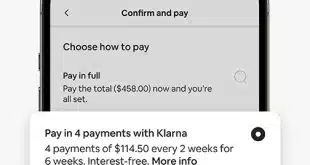Dexit Inc., a Toronto-based processor of stored-value transactions using radio-frequency identification (RFID) technology, is expanding nationally in Canada and will begin processing transactions in other parts of the world next year?but not in the U.S. any time soon. Dexit, which allows consumers to use chip-embedded keychain “tags” to tap accounts they have already set up and funded, is expanding to Montreal and has ambitious plans for a national Canadian rollout by the end of the year. The 3-year-old company then plans to expand its service internationally to markets including Latin America, the U.K., China, India, and Australia, says Renah A. Persofsky, president and chief executive at the company, which has been processing transactions in downtown Toronto since last September. The U.S., she says, is not high on her list for expansion because usage rates for debit cards tied to personal identification numbers and for products like prepaid cellular cards are low in the U.S. compared to markets like Canada, which boasts one of the highest rates of PIN debit transactions per capita in the world. Consumer preference for PIN debit and stored value, she says, is what she looks for as an indicator of acceptance of the Dexit concept. “Dexit is a natural extension” of such payment products, she argues. Unlike RFID-based payment devices being tested in the U.S. by MasterCard International and American Express Co., which tap into consumers' credit card accounts, Dexit links consumers to accounts they set up and fund using either their banks' online bill-payment services or pre-authorized debits from their bank accounts. When the user taps a Dexit terminal with the tag, the device transmits an identifier to the terminal that authorizes the transaction. Payments are not secured by PINs, so users are liable for debits occurring on lost or stolen tags up to the time they report the loss or theft, though Dexit imposes a $100 daily cap on spending. Users can also fund their accounts with cash and debit cards at kiosks the company has set up in certain locations or with automatic electronic transfers from a designated bank account whenever the Dexit balance reaches a threshold designated by the user. About half of Dexit's 32,000 accountholders use the automatic replenishment feature. Merchants that have signed up for Dexit so far include high-volume, low-ticket outlets such as fast-food restaurants, cafes, and newsstands. For the rollout, Dexit signed a licensing deal in April with Bell Canada giving the telecom company exclusive rights to sign merchants and deploy terminals nationwide. The company currently has installed 350 of its terminals, which are manufactured by an unnamed company to Dexit's specifications and with the company's software, with average tickets running about $4. Persofsky will not reveal merchant fees other than to say they slide down as volume increases, but says the cost to accept Dexit is less than that for debit cards and cash. Dexit is also cheaper than credit cards for merchants, a point Persofsky says should make the concept of prepaid debit via RFID attractive to merchants in the U.S., even if as she sees it American consumers prefer credit cards. “If there were a Dexit offering [other than the credit-based MasterCard and AmEx products], they'd be the first in line to take it,” she argues. She adds that over time, U.S. consumers are likely to adopt a prepaid model for low-ticket purchases, a development Dexit will be watching closely. In Canada, she says, “Our consumer base does not want to use a credit card to buy a cup of coffee.” Indeed, in much of the world, she says to use a credit card for such small transactions “is not the norm.” In this way, she draws a sharp contrast between Dexit's business model and that of MasterCard and AmEx for RFID payments, which she likens to a “proxy to a credit card.” AmEx has been piloting its ExpressPay system, which relies on chip-embedded keyfobs, in Phoenix, while MasterCard has begun to roll out its PayPass card product, beginning with adoption by 715 McDonald's outlets (Digital Transactions News, Aug. 18). Dexit, which was founded by private investors but went public in June, will rely on licensing deals with banks and acquirers to enroll both consumers and merchants as it executes its plan to penetrate foreign markets, Persofsky says. Now that the national rollout is under way, she says she expects to install 250 merchants a month as a result of Dexit's deal with Bell Canada. The telecom ” is doing an amazing job for us,” she says. The expected licensing income will add to Dexit's revenue streams, which also include merchant fees and fees from consumers to replenish their accounts. The first account funding is free, but each subsequent funding costs $1.50.
Check Also
Airbnb Expands Reserve Now, Pay Later Globally
Airbnb Inc. has expanded its Reserve Now, Pay Later booking option worldwide. The service enables …






